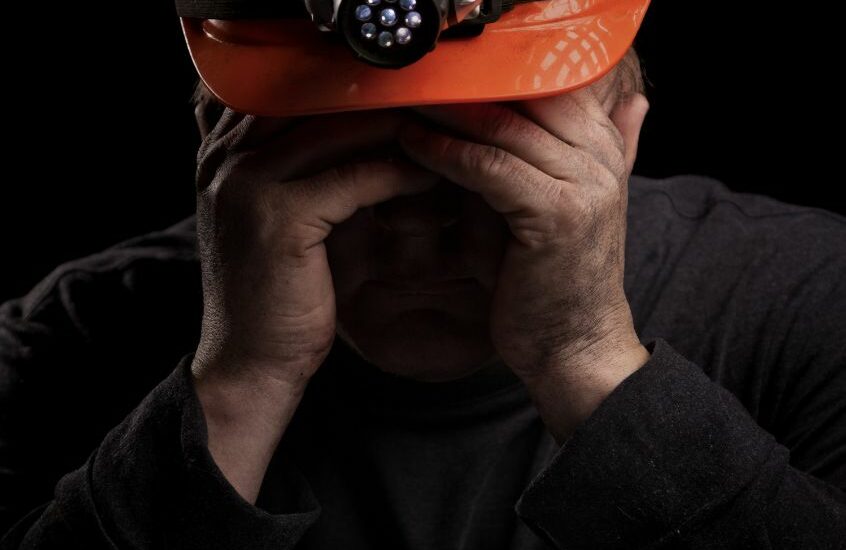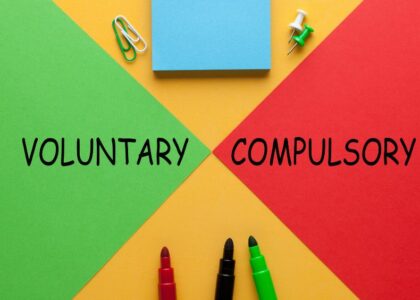Exploring how the Mining Industry poses unique challenges for Mental Health, and ways to support miners and support staff.
Unique Risks and Stress of the Mining Industry
Whether miners are drilling, or blasting for Coal, Iron Ore, Gas, or other minerals, they all know it is a physically dangerous, and extremely demanding job. This includes long hours, hot, dry working conditions. Also, heavy Machinery, constant change, and lack of career progression. Miners facing these problems on a daily if not hourly basis.
Miners and mining operations work under constant stress to monitor safety and procedures. They are required to constantly meet the operational requirements of big conglomerates.
Companies and management are often perceived by workers to be out of touch, and lacking empathy for the challenges workers face each day. The reality around this will vary depending on the individual company or team.
In the mining industry with 85% male workers, managers and supervisors, it’s a tough call to change culture and attitudes.
Workers in Mining experience unique challenges to their mental health. Miners regularly experience adrenal fatigue and prolonged stress. Research has linked these conditions to sleep disorders, increased accidents and cardiovascular disease.
Miners struggle with shift work rostering, long working hours, and then long commutes home after shifts. A deadly combination. Creating situations which profoundly increase the risk of injury, chronic illness, and relationship breakdowns.
Finally, mining industry employment models can affect people’s sense of job security. Contract, casual and short-term employment situations further creates stress for miners and their families. It cripples their ability to make long-term plans.
Research on Mental Health in Mining Industries
Mental Health in Mining industries has been the focus of many studies in recent years. The Minerals Council of Australia has also produced a Mental Health Blueprint which explores and supports training programs. This blueprint aims to support miners, their supervisors and managers.
The research is ongoing, and yet the problems remain the same. Depression, Fatigue, sleep disorders, and drug and alcohol abuse continue amongst miners.
Secondary effects of these issues includes increased suicide risk, relationship breakdowns and problems such as isolation and loneliness.
In the meantime, Mining Companies continue to focus on crisis management for dealing with mental health issues. The Business model focusses on compliance rather than ‘best practice.’ For companies it is easier to tick a compliance box, than truly fight for change.
In fact, cultural Change, and creative rostering options need to be undertaken. Companies need to truly understand the costs of mental health to the mining industry. In Australia, this is estimated to be between $320 – $450 million for the coal industry alone.
The Mining Industry needs to embrace and encourage quality training opportunities to better understand Mental Health as well as reducing Stigma.
How do Miners doing Shift work find the time to get help for their mental health?
The mining Industry is achieving ‘compliance’ by paying large fees for Employee Assistance Programs (EAPs) such as Mind Fit at Work, and Health Wise. In theory, these platforms provide amazing support for physical, financial and mental health to workers and their families. The reality is that only 34% of miners who identify as suffering actually use these services.
Less than 50% of miners feel their company is supportive and offers genuine assistance. However, the vast majority of miners either do nothing about their mental health, resign their job, or seek support outside the industry. This means the EAPs and other systems are failing at least 50% of the workforce.
Compliance is not enough. Despite a parliamentary inquiry into the industry, many mining supervisors still believe that suicide is ‘attention seeking behaviour.’ This is a totally untrue and revealingly ignorant statement.
Management need to directly confront and change this draconian and incorrect attitude. An attitude that is fuelling ongoing stigma.
Firstly, companies can utilise quality Training programs such as Applied Suicide Intervention Support Training and Mental Health First Aid. These programs can be rolled out across the industry, and preferably on-site face to face.
Given that, for males under 44, suicide is the biggest cause of death. Programs such as Mates in Mining have a lot of evidence emerging that these programs actually work to change the culture.
Once culture starts to change, so do attitudes towards mental health and help seeking.
Where can Miners go to get help for their Mental Health?
Secondly, miners in remote and regional areas need access to good quality telehealth services and online training. These services are currently limited, and the resources lag well behind the need.
Sue Crook and Julie Loveny who are miners in Western Australia. Together, they have sought to create their own support site specifically for FIFO workers, called This FIFO Life.
Finally, Mates in Mining and Trades Unions are increasingly recognising the need for quality, nationally standardised training. Tailored training that provides individuals with the skills and knowledge to challenge mental health stigma and stereotypes.
In addition, training that provides the means to support each other at the coal-face and worksites quickly and effectively is needed. You don’t need a psychology degree to help support a colleague, mate or family member. Miners can learn the skills.
In Mining, it is difficult to take the first step to get support. In a culture where mental health is not regularly discussed as part of a normal and safe conversation. This has to, and can change.
In conclusion
Mining companies must fund a multi-layered approach if mental health is to improve for miners working across the industry. Training managers, supervisors and workers to understand the signs and symptoms of fatigue, depression, sleep disorders, loneliness and isolation need to be undertaken.
Flexible rostering, on-site mental health support and ongoing conversations around mental health need to be implemented. These are creative solutions to an ongoing problem. Quality training programs across the industry need to be rolled out.
Mental Health issues cost the industry hundreds of millions of dollars. Meanwhile, miners and mining companies continue to experience reduced productivity, high workforce turnover and serious injuries. Mental Health Training can help address all these areas.
Current systems are broken. Companies must prioritise the mental health of all their staff which will in turn improve productivity, and provide them with a workforce which is resilient and effective.
It’s a win/win for the industry and for the workers.
For more information about the Training that we offer please contact Heather Smith at success@stepbystep.training or www.stepbystep.training. There are accredited mental health instructors all over Australia.





